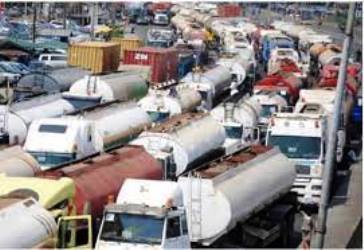The fight over control of Nigeria’s downstream oil market took a new turn at the weekend as the Depot and Petroleum Products Marketers Association of Nigeria (DAPPMAN) accused the Dangote Petroleum Refinery of misleading Nigerians and destabilizing the market.
This was contained in a statement released on Saturday by DAPPMAN’s Executive Secretary, Mr. Olufemi Adewole, titled “Clarifying the Role of Market Players in Nigeria’s Downstream Petroleum Sector.”
DAPPMAN said claims that Dangote Refinery’s repeated fuel price cuts were patriotic acts ignored their real timing and impact on the market.
According to the association, the refinery often slashes prices when other importers already have cargoes at sea or in storage. This, it said, shocks the market, weakens competition, and puts financial pressure on other players, including Dangote’s own Nigerian customers.
The group further alleged that the refinery sometimes sells fuel at cheaper rates to foreign buyers while offering higher prices to local buyers. DAPPMAN said this practice contradicts Dangote’s public claims of putting Nigerians first and instead worsens the struggles of local businesses already operating under slim profits.
DAPPMAN also rejected claims that its members import “substandard” fuel. It stressed that all products brought into the country are tested by independent, regulator-approved laboratories under the standards of the Nigerian Midstream and Downstream Petroleum Regulatory Authority (NMDPRA) and in line with global benchmarks.
The association pointed out that, ironically, the Dangote Refinery itself had, on several occasions, sought approval to distribute fuel with Sulphur levels higher than what is officially allowed. This, it said, raises questions about the refinery’s consistency and credibility when it comes to product quality.
DAPPMAN insisted that Nigeria’s downstream market is well-regulated, transparent, and built on international best practices. It warned that portraying one refinery as the sole backbone of the sector is misleading and ignores the vital role of many other players in keeping the market stable.


